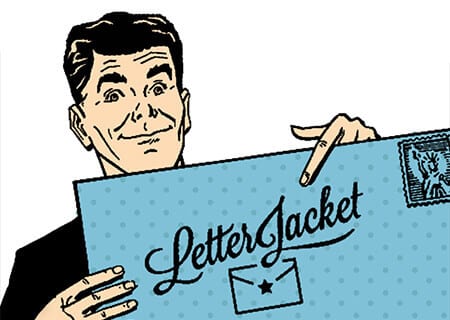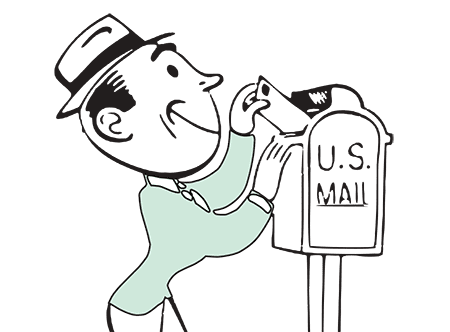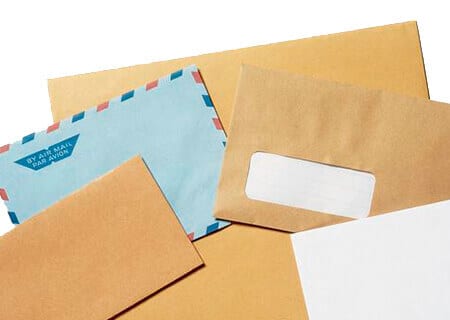The Joy of Receiving Letters and Cards
Receiving letters and cards can add a delightful and engaging element to our daily lives. Unlike emails, letters and handwritten cards offer a tangible and personal touch that digital communication simply can’t replicate. The experience of opening a beautifully crafted envelope, revealing a carefully written message inside, is both nostalgic and heartwarming. Handwritten notes convey a level of thoughtfulness and attention that makes the recipient feel truly valued. Moreover, letters and cards can be cherished and kept as keepsakes, serving as lasting mementos of meaningful moments and relationships. This essence of joy and personal connection underscores why traditional forms of communication hold a special place in our hearts.
At Letter Jacket Envelopes, we know envelopes play a key role in your business. It’s just one reason we are here to help you pick the right envelope for the job. No matter the contents, a high-quality, professionally custom-printed envelope will help you and your business make a stronger impression. And if you can’t find what you need, no worries—we can custom-make it! Visit our website or chat with an envelope specialist today.
Introduction
In today’s digital age, it might seem like emails are a more environmentally friendly option compared to traditional paper and envelopes. But is that really the case? Eco-conscious consumers, office managers, small business managers, and purchasing agents, listen up! This blog post will explore the sustainability of paper and envelopes versus emails, shedding light on why custom-printed envelopes and traditional paper communication may actually be a greener choice. Keep reading to discover practical tips, relevant facts, and expert insights to help you make an informed decision.
The Hidden Environmental Cost of Emails
Emails might seem harmless, but they come with a hidden environmental cost. Sending, storing, and reading emails require energy, contributing to carbon emissions. According to 8 Billion Trees, every email emits around 4 grams of CO2. While that might not sound like much, consider how many emails are sent globally daily—it’s a staggering amount of CO2!
Why should businesses consider using eco-friendly envelopes?
Using eco-friendly envelopes demonstrates a company’s commitment to sustainability, appeals to environmentally-conscious consumers, and can reduce the overall environmental impact of business operations.
E-Waste and Its Impact
One significant downside of digital communication is e-waste. Devices like laptops, smartphones, and tablets have a limited lifespan and contribute to e-waste when they become obsolete. Elytus reports that e-waste can lead to soil contamination, water pollution, and exposure to hazardous materials. In contrast, paper is biodegradable and recyclable, making it a more sustainable option.
The Benefits of Paper Recycling
The paper industry has made significant strides in sustainability. The American Forest & Paper Association reports that paper recycling helps reduce greenhouse gas emissions, save energy, and conserve natural resources. In 2020, 65.7% of paper consumed in the U.S. was recovered for recycling, proving that paper is a more sustainable choice.
Sustainable Forestry Practices
Paper production supports sustainable forest management. Two Sides North America highlights that responsibly managed forests provide numerous environmental benefits, including carbon sequestration, biodiversity conservation, and water regulation. You’re supporting these sustainable practices by choosing custom-printed envelopes made from responsibly sourced paper.
Reducing E-Waste Through Paper Communication
Using paper and envelopes can help reduce e-waste by decreasing the reliance on electronic devices. Office managers and purchasing agents can encourage paper communication to minimize the environmental impact of their operations. This shift can also lead to a healthier workplace environment by reducing screen time and eye strain.
Eco-Friendly Business Solutions
Businesses adopting eco-friendly practices can benefit from integrating paper communication into their operations. Reusing recycled paper, custom-printed envelopes, and sustainable office supplies are just a few ways to reduce environmental impact. These practices can enhance a company’s reputation and appeal to eco-conscious consumers.
The Role of Office Managers and Purchasing Agents
Office managers and purchasing agents are crucial in promoting sustainable office practices. By choosing eco-friendly paper products and encouraging recycling, they can significantly impact the environment. Implementing these changes can also lead to cost savings and improved employee satisfaction.
Building a Sense of Community
Paper communication can help build a sense of community among customers. Whether through personalized letters, custom-printed envelopes, or thoughtful notes, these tangible forms of communication create a stronger connection between businesses and their customers. This sense of community can lead to long-term customer loyalty and advocacy.
The Future of Sustainable Office Practices
As businesses continue to explore ways to reduce their environmental footprint, the role of paper and envelopes in sustainable office practices will become increasingly important. By adopting eco-friendly solutions and promoting recycling, businesses can contribute to a greener future.
Why Custom Printed Envelopes Matter
Custom-printed envelopes offer several advantages beyond their environmental benefits. They provide a personal touch, enhance brand image, and ensure confidentiality. For businesses, using custom-printed envelopes can improve customer engagement and leave a lasting impression.
Conclusion
In conclusion, while emails and digital communication may seem more convenient, they come with hidden environmental costs that can’t be ignored. Custom-printed envelopes and traditional paper communication offer a more sustainable alternative that supports recycling, reduces e-waste, and promotes responsible forest management. Switching to paper communication can lead to significant environmental benefits for eco-conscious consumers, office managers, small business managers, and purchasing agents.



